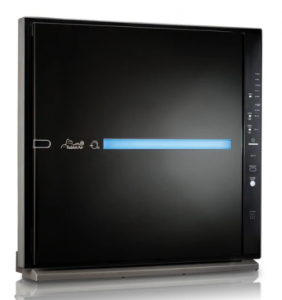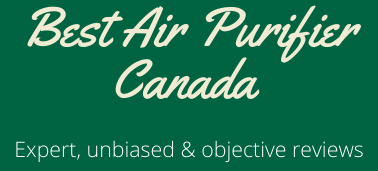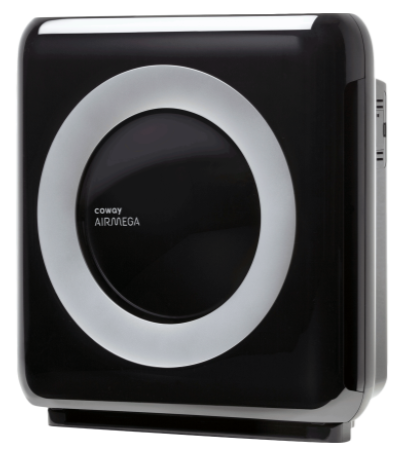We all know that air purifiers are meant to keep us safe from diseases, especially respiratory ones. Air purifiers remove lots of particles from indoor air – dust, pollen, dust mites, smoke, gases, fumes, odours, mould spores, bacteria, viruses, and so on. But can an air purifier make you sick?
Most air purifiers are safe. However, some use a particular air purification technology that affects some people. Today, we take a look at how certain air purifiers can harm you. We’ll do this by dividing air purifiers into two broad categories.
Types of Air Purifiers
If you look at air purifiers in general, you can have two classes:
1. Air purifiers that use filters
Air purifiers that use filters usually suck in air through the sides, pass it through two or more filters, then clean air is blown back into the air. Usually, clean air is pushed out through the top of the air purifier. So, what types of filters are installed in such air purifiers?
These are the most common filters that help air purifiers to clean indoor air efficiently:
- Preliminary filter (also called a pre-filter) – this captures large particles like dust, pet hair, and fibres.
- HEPA filter (or True HEPA filter) – this type of filter captures very fine particles, measuring as small as 0.3 microns in diameter. This way, HEPA filters can remove up to 99.97 percent of tiny airborne pollutants such as fine dust, dust mites, pet dander, and pollen.
- Activated carbon – not all air purifiers have this type of filter. However, you’d want to buy one with activated carbon if you need to eliminate smoke, odours, fumes, gases, and VOCs (volatile organic compounds) from the air.
Can air purifiers that use filters only make you sick? No, they cannot. However, you want to make sure that you clean or replace filters on time as per the manufacturer’s instructions. Also, you may want to do that a bit more frequently if you live in a highly polluted neighbourhood.

2. Ionic Air Purifiers (Ionizers)
Most ionizers work by releasing negatively charged ions into the air. These ions bind with airborne pollutants making them heavy such that they fall to the ground and other surfaces. So, such an ionizer will give you extra work of dusting.
Other ionizers use electrostatic precipitation whereby electrically charged plates in the air purifier capture particles as air passes through. These plates must also be wiped from time to time.
Can ionizers make you sick? Yes, they can. Most ionizers are safe, but some models can make some people sick or sicker. While this type of air purifier also eliminates harmful particles such as dust, pollen, bacteria, smoke, and allergens, some models emit high levels of ozone.
Exposure to high amounts of ozone can cause respiratory problems in humans, pets, as well as indoor plants. Inhaling ozone can irritate and damage the lungs. Throat irritation, chest pain, coughing, and shortness of breath are some of the unwanted effects of ozone.
Also, ozone can aggravate asthma and hamper the body’s ability to fight off respiratory diseases. To be safe before buying an ionizer, check the PPM rating. The highest recommended and acceptable level of ozone is 0.05 parts per million (PPM).
So, avoid any air purifier that emits more than that. Our review of the best air purifiers in Canada points you in the right direction. All our recommendations are effective at removing airborne pollutants and are safe to use.
Here’s how to find a good ionizer (YouTube video by Dr. Russell Jaffe):
Can an Air Purifier Make the Air Dry and Cause Respiratory Issues?
Air purifiers do not make the air dry as do dehumidifiers. However, running an air purifier at high fan speeds for too long can make the air feel dry. So, ensure that you run your air purifier at the highest speed only when the air is too dirty.
Besides, you can engage Auto Mode and let the air purifier decide when to run at the highest fan speed.
Conclusion
Do air purifiers make people sick?
Most air purifiers are safe. Very few air purifiers can make you sick, especially the ones that emit ozone. Ozone can cause a myriad of respiratory problems, though the severity varies from person to person. To be safe, avoid buying an air purifier that emits ozone, especially ionizers and ozone generators.
If you have to, ensure that the PPM rating is less than or equal to the recommended figure of 0.05. Also, if you need advice on which air purifier to buy, feel free to contact us or browse through our websites. We have analyzed and shortlisted the best air purifiers in various categories.

